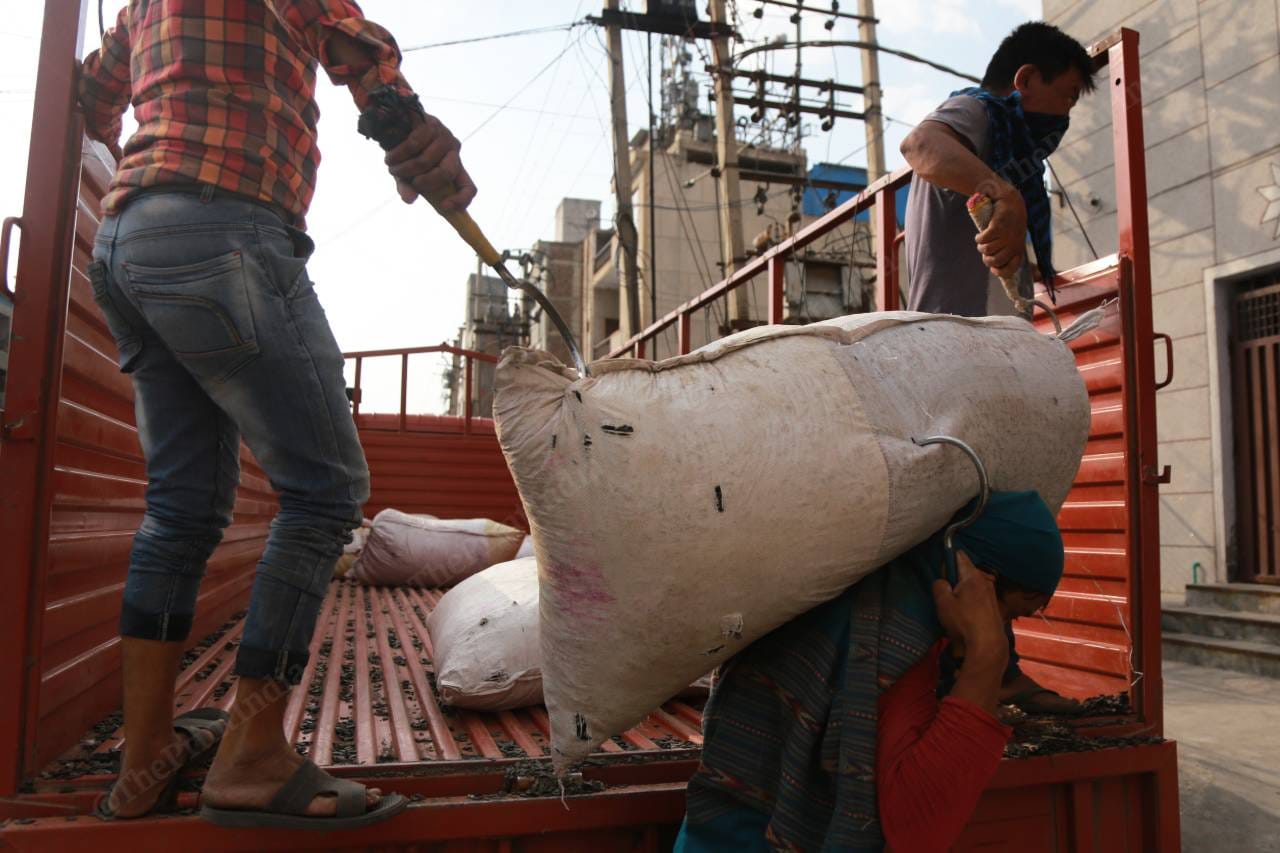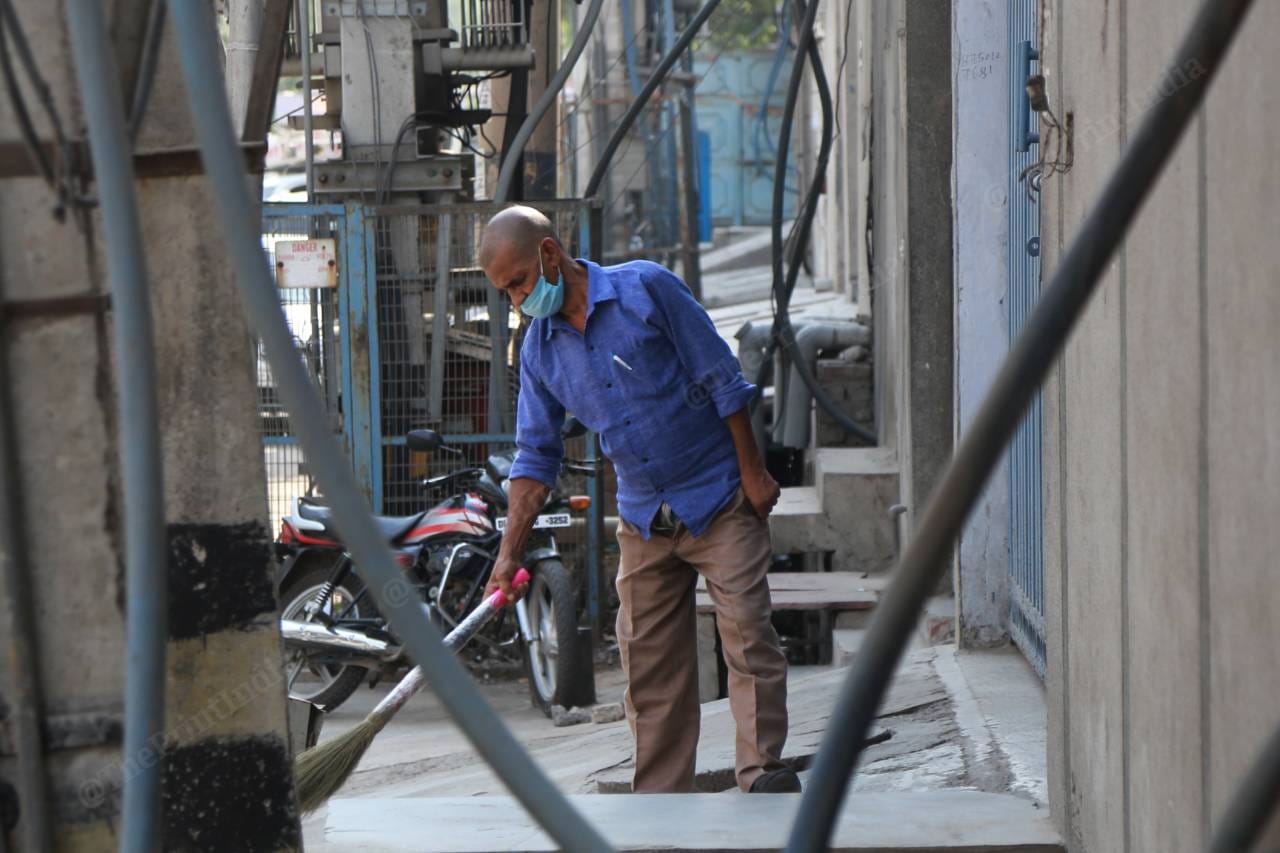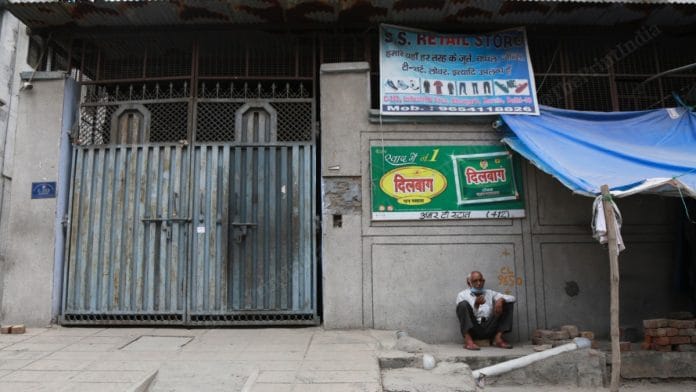New Delhi: Factories in Delhi’s Narela, Bawana and Okhla Industrial areas are struggling to function despite being allowed to reopen Tuesday due to a shortage of labour, supply of raw material and low demand.
Closed for almost two months due to the coronavirus lockdown, industrial units in Delhi were permitted to begin functioning in shifts. The Arvind Kejriwal government Monday had announced that units registered with names beginning with the letters A to L could function between 7:30 am and 5:30 pm, while units whose registered names began with the letters M to Z could function from 8:30 am to 6:30 pm.
However, despite permission being granted, the lack of an adequate number of workers has been the biggest stumbling block in Delhi’s industrial units chugging back to life.
Also read: Factories set to open in some areas, states scramble to figure out how to transport workers
Impact of migrant exodus
The Narela Industrial Area in North Delhi has 3,500 micro, small and medium enterprises (MSMEs). Factory owners here are working to implement guidelines issued by the Ministry of Home Affairs, which include sanitising factories and starting operations with the limited labour.
“Only 30 per cent of factories are working now, including essential goods manufacturers. Most of the labour is from Uttar Pradesh and Bihar (since) most have gone back to their villages … so work can’t start properly,” said Bhagwat Das Agarwal, president, Narela Industrial Area Welfare Association.
In neighbouring Bawana industrial area, the labour shortage has seen a mere 50 of the 16,500 factories start work.
“The problem is not just that labourers have left for their villages, but that they’re unlikely to come back at least for the next six months. So, we are going to continue to face this labour crisis for the better part of this year,” said Raj Jain, president of the Bawana Industrial Area Welfare Association.

For manufacturers of essential goods such as pulses and grains, operations continued during the lockdown, however, the labour crisis has hit them too.
Agarwal Industries in Narela Industrial area, which processes pulses for wholesalers, produces the same 200 quintals as it did before the lockdown.
“Only eight people are working here now as opposed to the 25 earlier. Now that interstate movement has been allowed, if more labourers leave, then we will face production issues,” said Sanjeev Kumar, the accountant at Agarwal Industries.
For those managing to run operations, labour shortage has meant a considerable delay in the process.
“Earlier if it took 10 minutes to load one truck, now it takes at least 15-20 minutes because we have fewer people,” said Subha Rao, supervisor at Agarwal Industries.
Also read: Migrant crisis could’ve been averted if Modi’s One Nation One Ration Card scheme was ready
Demand and supply shortage
Apart from the labour crisis, the other two handicaps industries must deal with are low demand and short supply of raw materials.
In Okhla Industrial Area, Capital Radio Company makes loudspeakers and other such equipment. With no public events or religious congregations in the offing, the factory is struggling to keep operations going.
“Nature of this pandemic is such that there will be no public events in the near future. We are only working on the two-three export orders that we have. We don’t have any domestic orders. Earlier, we would get at least 20-30 lakh domestic orders in a month,” said Rupesh Jain, Manager, Capital Radio Company.
At Alexis Global Private limited, a supply chain logistics unit in Okhla Industrial Area, there have been no orders for tyres and batteries in the past two months. “We have got only 20 per cent of the orders that we used to get earlier. That too not for our tyres and batteries but for medicine supply,” said Neha Dikshit, human resources, Alexis Global Private limited.
In such a scenario, factory owners are struggling to even pay the basic overheads. “I have to pay rent, electricity for the unit along with providing food and ration to the labourers. With no orders and no supply, I am running at a loss now,” said Dinesh Agarwal, owner, Sri Balaji Plastic Private Limited in Bawana Industrial Area, which grinds plastic to supply to auto companies.
Kumar Enterprises in Bawana Industrial area, which makes batteries for cars and inverters, is currently supplying units within Delhi. “We used to send a lot of batteries to UP, Haryana and Rajasthan. Now we are restricted to Delhi only,” said Vikas Bansal, the supervisor.
Inter-state restrictions have not only meant companies are unable to transport goods across borders to meet demand, but they are also unable to have raw materials shipped in.
“For the first time in two months, raw material has come in from the Mundka Border area, so we have started work today,” said Agarwal.
Bawana Industrial Area Industrial Association claims that to meet these basic overheads, government intervention is essential. “The government should support us by waiving electricity bills and tweak labour laws to allow labourers to work longer,” said Bawana Industrial Area Welfare Association’s president, Jain.
ThePrint reached Delhi Industries Minister Satyendar Jain through phone calls and messages on WhatsApp, but there was no response until the time of publishing this report.
Also read: Graded lockdown exit will make industrial recovery painfully slow, says Anand Mahindra
For workers, fear of infection lingers
Several workers ThePrint spoke to said they are scared to resume work in the current situation.
“I have two children at home … I feel scared when I visit these factories but what option do I have? I have to feed my family,” said Anil Kumar, who works as an electrician in Narela Industrial Area.

Raju, who works at Sri Balaji Plastics Pvt Ltd, said he has been staying at the factory for two months now. “We got food and ration from the owner but no wages. The owner himself has no money, so how will he pay us? Now he has said that since work has started, we will get our wages,” he added.
Naresh Kumar said he is the only one of more than 100 of them who manages to come to the factory now. “150 people used to work in this factory but now, for the past two months, only I come here. The owner has said that due to the labour shortage, he’s trying to figure out how operations can start. They’re paying my salary on time,” said Kumar who works as a guard at SS Retail Store which manufactures footwear. The factory at Narela has remained shut.
Ancillary workers who work around these factories too are bearing the brunt of the pandemic. “I haven’t gone home in two months even though I live in neighbouring Sonipat. Whenever villagers see my truck, they know I’ve been visiting different states, so they throw stones (at me) and abuse me. I want this to end so I can go home to see my children,” said Anil Kumar, who transports goods for Public Printing Press Private Limited in Bawana Industrial Area.
Also read: India is reopening its economy but millions of workers are staying at home






